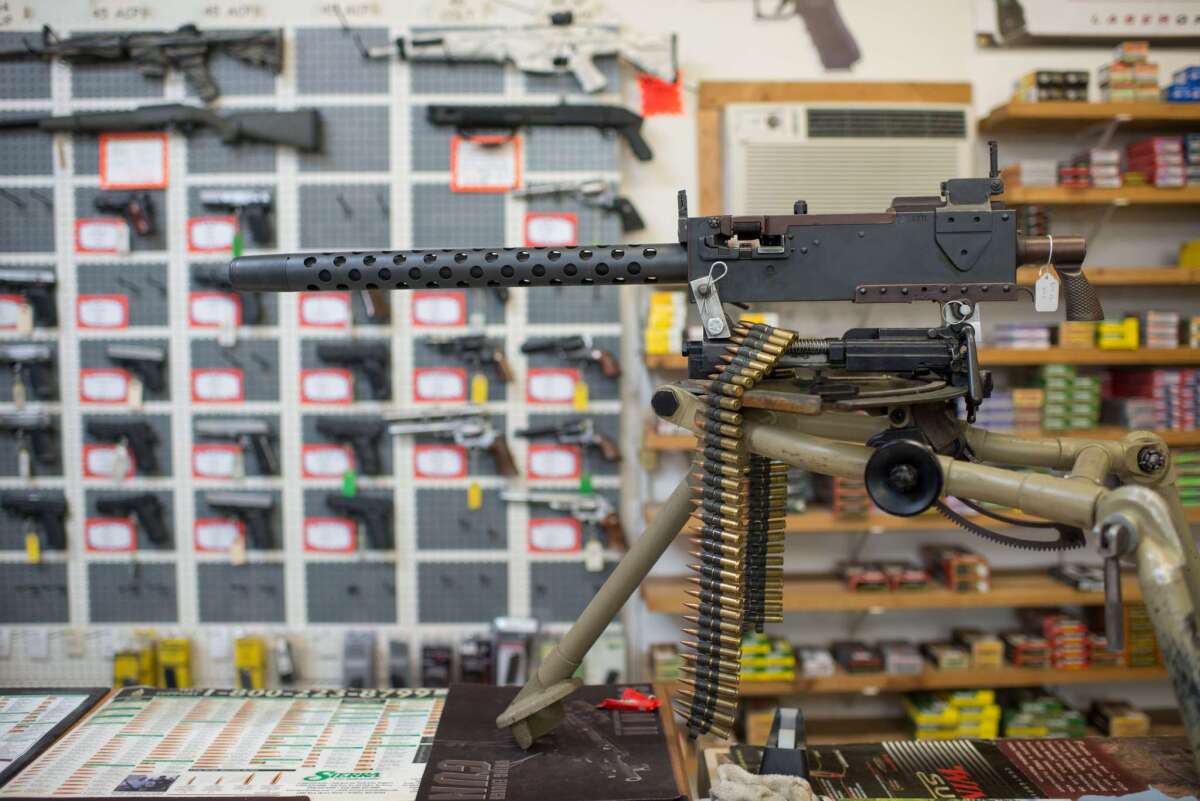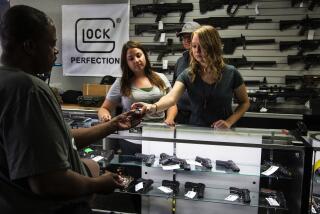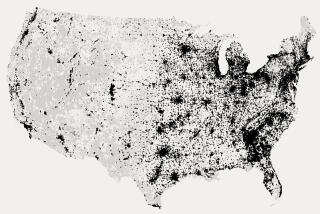Op-Ed: Here’s a novel way to limit gun sales

Various weapons are on display at Roseburg Gun Shop in Roseburg, Ore. Oct. 2, the day after the town saw a deadly shooting take place at nearby Umpqua Community College.
Polling demonstrates that roughly 90% of Americans would like Congress to pass a law requiring background checks on all gun sales, including those by unlicensed sellers at gun shows, or online, or anywhere else. But even in the wake of a string of horrific mass shootings over the last few months, Congress appears no closer to acting than it was after the Newtown, Conn., shooting in 2012, when such a bill fell five votes short of the 60 required to advance in the Senate.
Last week, Democratic presidential candidate Hillary Rodham Clinton put forward a new idea: use executive power to require more gun sellers to get a federal license, which would, in turn, require them to perform background checks. This proposal, which President Obama is reportedly weighing as well, hinges on the definition of what it means to be “engaged in the business” of selling guns.
[President] Obama should use the power of his office to apply the blueprint offered by state sales tax laws to gun dealing.
Under current law, only licensed gun dealers are required to perform background checks for all gun sales, and only those individuals deemed to be “engaged in the business” of dealing in guns are required to obtain a license from the Bureau of Alcohol, Tobacco, Firearms and Explosives. But the definition of “engaged in the business” is vague. It says that a dealer must be licensed if he or she devotes “time, attention and labor” to selling firearms “as a regular course of trade or business with the principal objective of livelihood and profit.” Those who engage in “occasional sales” or who buy and sell guns as a “hobby” or to add to a “personal collection” are exempt.
This weak definition has allowed individuals to sell guns at a high volume without becoming licensed and without conducting background checks.
As policymakers look to rewrite the definition of what “engaged in the business” means in the context of gun sales, there is a strong set of rules already in place in many states that could provide guidance: state sales tax laws.
Nearly every state imposes a sales tax on goods sold, and in many states, sellers are exempt from collecting the tax only if they engage in low-volume or infrequent sales. In determining what type of sale is exempt from taxation, many states have adopted a nuanced, specific approach that considers not only the number of products sold but the overall nature of the business.
For example, Missouri considers whether sellers advertise or otherwise represent themselves as a retailer. It looks at frequency and duration of sales activity and the nature of the market for the good being sold. Additionally, any individual who earns more than $3,000 a year through his or her sales activity must collect sales tax.
Meanwhile, in West Virginia, individuals who engage in “isolated transactions” — defined as no more than four sales transactions a year and by sellers who don’t regularly sell that type of product — are not required to collect sales tax. And in Florida, sellers are exempt only if they meet a long list of criteria: They paid sales tax when they first bought the item that is for sale, they do not engage in sales activity more than twice a year, the property was not originally purchased for the purpose of resale, they don’t sell goods at locations where they are competing with other retailers who are required to collect sales tax, and the sale is not made through an agent who is required to collect sales tax.
Using the state sales tax approach, a new definition of what constitutes gun dealing could include some combination of these criteria: the number of guns sold; the frequency of sales; the dollar amount of the proceeds; whether sellers advertise, rent tables at gun shows or operate an online store; whether they sell guns new in the package; and whether they sell multiple guns of the same make and model.
Rather than falling back into the usual patterns of the debate over gun laws, which result in lots of talk and zero action, Obama should use the power of his office to apply the blueprint offered by state sales tax laws to gun dealing. It would be a modest step forward in closing the private sale loophole and increasing background checks.
Arkadi Gerney is a senior vice president and Chelsea Parsons is the vice president of guns and crime policy at the Center for American Progress. The center will issue a report Thursday on how to use the sales tax model for gun sales.
Follow the Opinion section on Twitter @latimesopinion and Facebook
More to Read
A cure for the common opinion
Get thought-provoking perspectives with our weekly newsletter.
You may occasionally receive promotional content from the Los Angeles Times.






